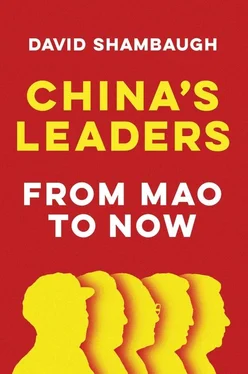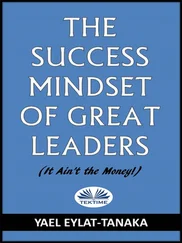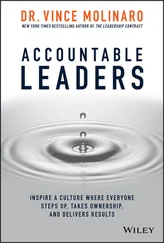Some leaders exhibit the character trait of narcissism (excessive interest in or admiration of oneself), and this has been extensively studied by political psychologists. 8When it occurs in leaders this personality disorder usually leads to a compulsive desire of the leader for mass adulation and the creation of a “cult of personality.” Among the five leaders in this study, it is clear that Mao had a severe case of narcissism, Xi Jinping has a very strong case, and Jiang Zemin had a mild case. Deng Xiaoping and Hu Jintao were self-effacing individuals who were not so inclined (although in Deng’s case the propaganda apparatus nonetheless still tried to create such a cult of personality).
An individual leader’s lifelong socialization is also critical to understanding their behavior. It is well established in the fields of psychiatry, psychology, social psychology, psychohistory, political psychology, and psychopathology that pre-adult and early adult socialization are critical formative periods that do much to shape how a person behaves throughout their life. In particular, at least the following experiences and relationships have been identified as key influences: where one grows up and their standard of living; relationships with mothers and fathers; degree of maternal nurturing (or lack thereof); experiences in school and relationships with teachers; and relationships with peers. All of these encounters usually have far-reaching impacts on subsequent personality development. For example—for boys—maternal nurturing, a secure home environment, interactive siblings, financial stability, supportive primary and secondary school teachers, and inclusivity with a network of peers can all lead to a secure ego, confidence, and an outgoing adult personality. Conversely, antagonistic relations with fathers, a sense of neglect from mothers or abandonment by parents (even if they are away from home working), bickering with siblings, financial instability, harsh discipline from teachers, exclusion by peers—these experiences can all lead to an alienated, frustrated, angry, repressed, aggressive, insecure, insular adult personality type. This latter type is frequently associated with the development of strong anti-authoritarian and frequently narcissistic adult personality types. These two sets of general pre-adult characteristics have also been found across multiple national-cultural environments and are not simply characteristics of modern Western societies. Indeed, in pre-modern agrarian or early industrialized societies they are quite common.
To what degree do these early family rearing and socialization features shed light on the five leaders covered in this study? One interesting commonality is that only one of the five (Jiang Zemin) grew up in a close-knit and stable nuclear family environment. All the others had very disrupted youths with absent or deceased parents.
Mao and his father had very strained relations, they clashed frequently, and Mao’s anti-authority persona has been attributed to his deep antagonistic relationship with his father. 9His father made Mao work in the fields beginning at age six, something he resented. As Mao described his father in an interview with Edgar Snow in Yanan in 1937 (his only known reflection on his youth and family): “He was a hot-tempered man and frequently beat both me and my brothers.” 10Mao told Snow that he grew to “hate” his father. Being unfilial toward his father, in such a patriarchal traditional culture, gave Mao an “Oedipus complex” (a Freudian reference to Greek King Oedipus, who unknowingly killed his father and married his mother), in the view of Sinologist and social scientist Richard H. Solomon, who authored a comprehensive psychocultural biography of Mao. 11In sharp contrast to his father, Mao’s mother was very nurturing and indulgent of her first son—thus providing him with a strong sense of self-confidence and a self-assured ego. As he described her to Snow: “My mother was a kind woman, generous and sympathetic, and ever ready to share what she had.” 12Mao was also very protective of his mother (sometimes physically) when she clashed with his father. There was much acrimony in the Mao family household. Mao’s anti-authority trait deepened in primary school, where his teacher frequently punished and beat him. Mao described his teacher as belonging to the “stern treatment school; he was harsh and severe.” 13After five years in this school and one too many beatings Mao ran away, never to return. These early childhood experiences proved pivotal for Mao—producing resentment of his father and authority figures, and instilling “revolutionary” traits in him at an early age.
In Deng Xiaoping’s case, his father was absent for long periods from the family residence in rural Sichuan, and thus Deng did not have much of a relationship with his father. His mother, like Mao’s mother, was loving, and doted on her first-born son. But she died when Deng was only 14. Deng then left home for middle school in Chongqing, also never to return. At just age 16 Deng had the wrenching experience of being sent on a long steamship trip to France for an overseas work-study program (which turned into much work and little study). Altogether Deng spent a total of six years abroad in France and one year in Moscow before returning to China at age 23. These early experiences on his own certainly bred a certain self-reliance in Deng. While in France Deng developed a liking for French food, liquor, and a passion for croissants. He found a series of odd jobs and factory work, but his schooling only lasted three months. Deng did find a peer group in relationships with other young Chinese and Vietnamese (including Ho Chi Minh) then studying and working there, many of whom were active in socialist politics following the Bolshevik Revolution (1917). One of these individuals who did play an important mentoring role in Deng’s life was Zhou Enlai, who was six years Deng’s senior and who brought him into the nascent Chinese Communist Party Socialist Youth League. Deng’s main job in the League was to produce propaganda pamphlets, for which he became known as “Monsieur Mimeograph.”
Hu Jintao was also deprived of parents early. His mother died when he was only 7, and because his father (a merchant) was often away on business traveling throughout the lower Yangzi delta region, Hu and his three sisters were raised by an aunt. While the aunt was a good provider, Hu never had the security and familiarity of a close nuclear family. This likely contributed to his own self-reliance, and possibly also to the aloofness he displayed as an adult.
Jiang Zemin is the only one of the five leaders in this study to have had a fairly normal nuclear and extended family life, growing up in Yangzhou, Jiangsu province. His father was a writer and part-time electrician, and Jiang recalled later that his mother was doting and loving. 14The Jiang family was well-to-do and well-known in Yangzhou, an important cultural and commercial center for centuries. Jiang was one of five children. His uncle Jiang Shangqing and his wife were second parents to Jiang Zemin, essentially raising him. Jiang Shangqing was a leftist intellectual who was active in communist underground activities, arrested and rearrested by the Nationalists’ police, and who had just joined the communist Red Army when he was killed in an ambush during the Japanese occupation in 1939, thus becoming a CCP martyr (giving the extended Jiang family a communist pedigree). Following his death Jiang Zemin’s natural father Jiang Shijun offered their son to his brother’s widow, as the couple had no male children of their own. 15This was not as disruptive for young Jiang Zemin as it might seem, as he had been living mostly with the aunt and uncle from an early age. Other than this anomaly, as described in Chapter 4, Jiang’s upbringing was quite normal and quite intellectual—which may have given him a secure self-confidence.
Читать дальше










